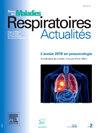非小细胞肺癌术后免疫治疗:当前标准与前景
Q4 Medicine
引用次数: 0
摘要
手术切除是可切除的I至III期非小细胞肺癌(NSCLC)治疗的基石。长期以来,对于可切除的II-III期疾病患者,以铂为基础的化疗,无论是新辅助还是辅助,都与手术相结合,尽管获益不大,总生存期增加约5%。最近,免疫治疗已被纳入新辅助、辅助和围手术期治疗方案,基于数据显示,局部或局部晚期、可切除、无癌驱动突变的非小细胞肺癌患者的无事件生存(EFS)、无病生存(DFS)和总生存得到改善。两个3期试验证明了辅助免疫治疗的益处,导致欧洲批准,尽管这些试验目前在法国没有报销。6项3期临床试验CheckMate-816、AEGEAN、CheckMate-77T、NeoTORCH、KEYNOTE-671和RATIONALE-315显示了在新辅助或围手术期化疗中添加免疫检查点抑制剂的益处。基于CheckMate-816的结果,新辅助nivolumab已被批准与铂基化疗联合用于可切除的复发风险高的成年NSCLC患者,这些患者的肿瘤表达PD-L1 >; 1%, EGFR突变和ALK重排阴性。本文章由计算机程序翻译,如有差异,请以英文原文为准。
L'immunothérapie péri-opératoire des cancers bronchiques non à petites cellules (CBNPC) : standards actuels et perspectives
Surgical resection is the cornerstone of the management of resectable stage I to III nonsmall cell lung cancer (NSCLC). Platinum-based chemotherapy, whether neoadjuvant or adjuvant, has long been combined with surgery for patients with resectable stage II-III disease, although the benefits are modest, with an overall survival gain of approximately 5 %. Recently, immunotherapy has been incorporated into neoadjuvant, adjuvant, and perioperative treatment regimens based on data showing improvements in event-free survival (EFS), disease-free survival (DFS), and overall survival in patients with localized or locally advanced, resectable NSCLC without oncogenic driver mutations. Two phase 3 trials demonstrated a benefit of adjuvant immunotherapy, leading to European approval, although these are not currently reimbursed in France. Six phase 3 trials CheckMate-816, AEGEAN, CheckMate-77T, NeoTORCH, KEYNOTE-671, and RATIONALE-315 have shown a benefit from adding an immune checkpoint inhibitor to chemotherapy in the neoadjuvant or perioperative setting. Based on the results of CheckMate-816, neoadjuvant nivolumab has been approved in combination with platinum-based chemotherapy for adult patients with resectable NSCLC at high risk of recurrence, whose tumors express PD-L1 > 1 % and are negative for EGFR mutations and ALK rearrangements.
求助全文
通过发布文献求助,成功后即可免费获取论文全文。
去求助
来源期刊

Revue des Maladies Respiratoires Actualites
Medicine-Pulmonary and Respiratory Medicine
CiteScore
0.10
自引率
0.00%
发文量
671
 求助内容:
求助内容: 应助结果提醒方式:
应助结果提醒方式:


